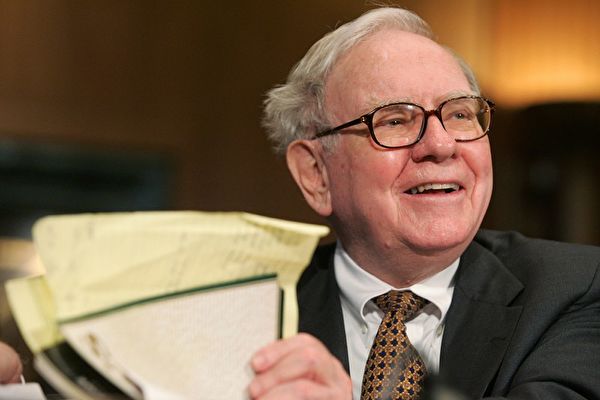Warren Buffett, known as the “Oracle of Omaha,” became a billionaire at the age of 56, reaching a significant milestone through patience and a deep understanding of the power of compound interest. His success story demonstrates a crucial principle beyond intelligence and quick profits – time is a key factor in accumulating vast wealth.
Buffett’s investment acumen is widely praised, but one of the major factors contributing to his success has nothing to do with picking the right company stocks. Morgan Housel, in his best-selling book “The Psychology of Money,” wrote, “His skill is investing, but his secret is time. This is the principle of compound interest.”
Housel, in an interview with CNBC in 2022, mentioned that 99% of Buffett’s net worth was accumulated after the age of 65. He stated, “If Buffett had retired at 65, you might have never heard of him.”
According to reports from Forbes and Bloomberg, as of May this year, Buffett’s net worth is estimated to be between $166.4 billion and $169 billion.
When billionaire Jeff Bezos asked Buffett how he amassed such immense wealth, Buffett’s response was “getting rich slowly” because “nobody wants to get rich slowly.”
Despite the frequent media coverage of young tech billionaires like Elon Musk and Mark Zuckerberg, Forbes reported in 2024 that the average age of global billionaires was 66. Most billionaires have already surpassed retirement age.
These data suggest that the accumulation of wealth typically requires several decades of time.
However, in today’s society, most people are chasing “quick money,” pouring all their energy into trying to achieve the highest investment returns without the patience to experience the power of time and compound interest.
Renowned American physicist Albert Allen Bartlett once said, “The greatest shortcoming of the human race is the inability to understand exponential functions.”
If asked whether one would prefer to receive $5 million upfront or 1 cent that doubles every day for a month, many would likely choose the former without hesitation.
This demonstrates the powerful force of compound interest. Unlike simple interest, compound interest involves “interest on interest,” where the interest earned is reinvested along with the principal, leading to exponential growth in the long run and significant economic rewards.
Buffett likens compound interest to a snowball rolling down a hill, growing larger as it reaches the bottom. He emphasizes the importance of having a long hill, meaning starting young or living to a ripe old age.
For ordinary investors to harness the power of compound interest, one crucial factor is to start as early as possible.
David Ray, president of Salem Investment Counselors, advises, “Start early, the younger the better, even with small investments, and stick with it.”
Buffett himself started early, buying his first stock at the age of 11, and by the age of 30, his net worth had reached $1 million.
In a thought experiment for CNBC in 2020, Housel considered what would happen if Buffett were an ordinary person, exploring the world and seeking direction in his teens and twenties, with a net worth of only $25,000 by the age of 30.
Assuming he still achieved an extraordinary annual return of 22% but retired from investing at 60 to play golf and enjoy family life, his net worth by 2020 would be only $11.9 million.
In reality, Buffett’s financial success is attributed to the financial foundation he built in his youth and longevity. This is the principle of compound interest.
Looking at it from a different angle, while Buffett is the wealthiest investor in history, he is not necessarily the greatest investor in terms of average annual returns.
Since 1988, Jim Simons, founder of the hedge fund Renaissance Technologies, has achieved an annual compound return of 66%, a record yet to be surpassed. As mentioned earlier, Buffett’s annual compound return is around 22%, one-third of Simons. However, Simons’ net worth was approximately $31.4 billion at the time of his death in May 2024, at least 80% less than Buffett’s.
If Simons is a better investor than Buffett, why such a disparity? Simons didn’t find his investment sense until the age of 50. His compounding period is less than half of Buffett’s.
Amidst various books on economic cycles, trading strategies, and industry betting, Housel believes the most powerful and important book should be titled “Shut Up And Wait.” This book consists of one page – a long-term economic growth chart.
Good investments don’t necessarily yield the highest returns because the highest returns often happen once and cannot be repeated. Good investments earn decent returns that you can persist with over an extended period to compound profits. Ultimately, compound interest will bring substantial rewards.
As Buffett said, “The most important thing about making money is time. You don’t need to be extremely smart, you just need to be patient.”

